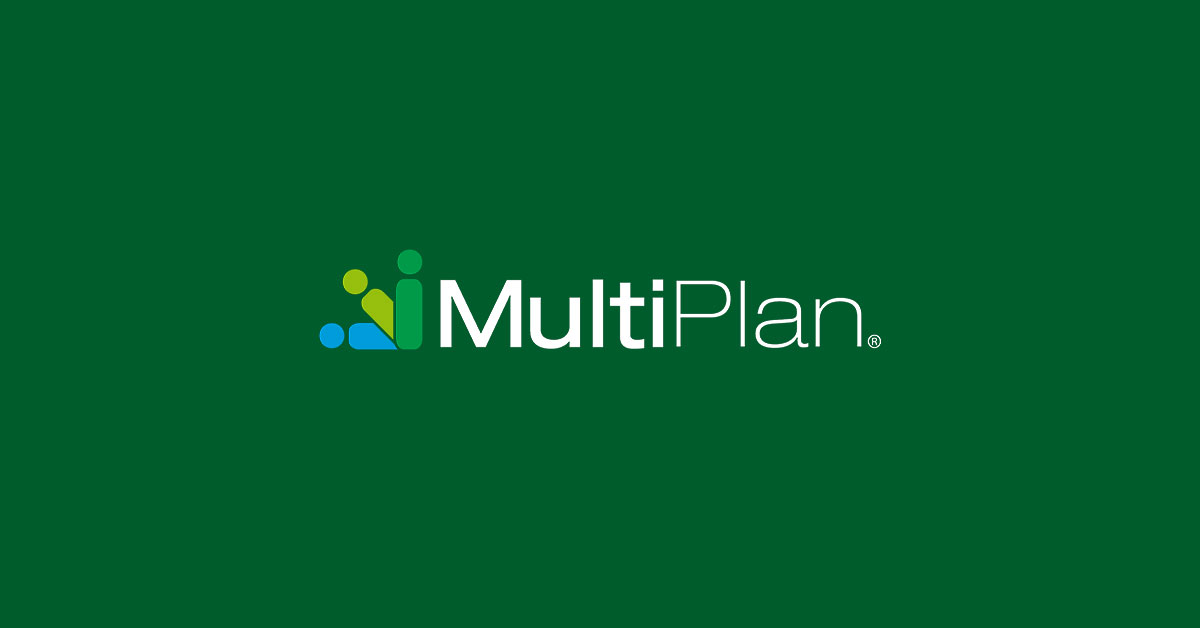When you’re ready to seek help for drug or alcohol addiction, it’s crucial to understand your insurance options. MultiPlan, a name that often surfaces in this journey, is not always fully understood.
However, knowing its role can help you take proactive steps as it expands your rehab coverage options.
It’s not an insurance company but a nationwide network that partners with major insurers. Its primary function is to expand your access to healthcare providers, including addiction treatment centers.
In this article, we’ll explain how MultiPlan works, what kinds of substance use treatment it typically helps cover, how to check if your benefits apply, and what to do if you want to attend an out-of-network facility.
We’ll also explain how Tulip Hill Recovery supports people using plans that include MultiPlan, offering evidence-based, trauma-informed addiction care in a private, supportive setting.

What Is MultiPlan? How It Works with Rehab Insurance
MultiPlan is not an insurance provider—instead, it’s a Preferred Provider Organization (PPO) network used by many insurance companies to broaden the pool of healthcare providers available to their members.
If your insurance card includes the MultiPlan logo, it means your insurer uses MultiPlan’s network to help you access more treatment options, sometimes at reduced costs.
This can be especially helpful when you’re looking for addiction treatment.
MultiPlan works behind the scenes with insurers like Aetna, UnitedHealthcare, and others, giving members access to treatment centers that might otherwise be considered “out of network.”
While your insurance carrier determines the coverage terms and benefits, MultiPlan expands the list of providers you can work with.
Some of the advantages of having MultiPlan as part of your plan include:
- Access to a wider range of rehab facilities, even those out-of-state or offering specialized programs.
- Negotiated discounts that reduce out-of-pocket costs for in-network care.
- In some cases, partial coverage for out-of-network treatment, especially under PPO plans.
Does MultiPlan Cover Drug and Alcohol Rehab?
Yes, MultiPlan does cover drug and alcohol rehab, but it’s important to understand its role.
MultiPlan doesn’t determine what’s covered. Your actual insurance provider does.
MultiPlan simply offers a broader network of treatment centers that your insurer may work with to help lower costs or increase accessibility.
That means if your plan includes behavioral health, it likely includes addiction treatment too.
If your plan uses the MultiPlan PPO network, you may have access to:
Medical Detox
Short-term, medically supervised care to manage withdrawal safely and comfortably.
Inpatient/Residential Rehab
24/7 structured programs that provide therapy, support, and a break from environmental triggers.
Partial Hospitalization Program (PHP)
Full-day treatment with clinical and therapeutic support—ideal for people who need structure but not overnight care.
Intensive Outpatient Program (IOP):
Flexible schedules with several therapy sessions per week, great for those transitioning from higher levels of care.
Outpatient Services and Aftercare:
Continued support through individual therapy, group counseling, or case management.
Dual Diagnosis Treatment
Integrated care for people managing both a substance use disorder and a mental condition, such as anxiety, depression, or PTSD.
Tulip Hill Recovery works with many insurance plans that use MultiPlan. We can help you navigate your benefits and understand exactly what your plan will cover—without the confusion.
Types of Addiction Treatment Programs Typically Covered
If your insurance plan uses the MultiPlan network, you may be eligible for coverage at several levels of addiction care. Each level addresses a different stage in the recovery journey, and MultiPlan-linked benefits often make these services more accessible and affordable.
Medical Detoxification
Medical detox is, for most, the first step in recovery, especially for substances like alcohol, benzodiazepines, and opioids that cause dangerous withdrawal symptoms.
This phase involves 24/7 monitoring, medication-assisted treatment (MAT) if needed, and clinical oversight to ensure your safety and comfort.
Most insurance plans with MultiPlan access include detox services when deemed medically necessary.
Inpatient Rehab (Residential Treatment)
This is the most intensive addiction care, with 24-hour support in a structured, live-in environment.
You’ll participate in daily therapy, skill-building, trauma work, and peer support.
Residential rehab is typically covered under behavioral health benefits for a set number of days, depending on your insurance plan’s guidelines.
Partial Hospitalization Program (PHP)
PHP offers full-day treatment—usually five days a week—but does not require residents to live on-site. It’s ideal for individuals stepping down from inpatient rehab or those who need structure but also want to return home at night.
Most MultiPlan-partnered plans include PHP when clinically appropriate.
Intensive Outpatient Program (IOP)
IOP provides several hours of therapy per week on a flexible schedule. It’s designed for people transitioning out of higher care or those with strong support systems at home.
MultiPlan-associated insurance plans often cover IOP as part of a long-term recovery plan.
Outpatient Counseling & Aftercare
Outpatient Care and Aftercare
Outpatient care includes ongoing therapy, medication management, relapse prevention planning, and support groups.
These services are essential for maintaining sobriety over the long haul and are commonly covered, especially if your treatment provider is in-network through MultiPlan.
What Addictions and Conditions Does MultiPlan Insurance Cover?
MultiPlan itself isn’t a health insurance provider—it’s a nationwide network that works behind the scenes with major insurers to expand your access to in-network care. That said, what your plan actually covers depends on the insurance provider that partners with MultiPlan.
Still, in most cases, if your plan includes behavioral health benefits, substance use treatment is covered based on medical necessity, not the type of drug used. This means you’re unlikely to be denied care based solely on what substance you’re struggling with.
Alcohol Use Disorder
Alcohol is one of the most commonly treated substances in rehab programs.
Coverage often includes detox, inpatient or outpatient care, and ongoing therapy.
Because alcohol withdrawal can be dangerous, medically supervised detox is usually considered necessary.
Opioids (Including Prescription Painkillers and Fentanyl)
MultiPlan Insurance frequently covers treatment for opioid addiction, including both prescription medications (like oxycodone or hydrocodone) and illicit opioids (i.e., heroin and fentanyl).
Given the current opioid epidemic in Tennessee, many plans support multiple levels of care for opioid use disorder.
Benzodiazepines (Xanax, Ativan, Klonopin)
Benzodiazepine addiction can be particularly dangerous due to the risk of severe withdrawal symptoms.
Insurance typically covers medically supervised detox and longer-term care to address the physical dependence and underlying causes of use.
Stimulant Use Disorders
Treatment for stimulant addiction often involves intensive behavioral therapy and structured support.
MultiPlan Insurance may cover residential or outpatient treatment, depending on the situation.
Polysubstance Use
MultiPlan Insurance recognizes how complex polysubstance addiction can be and usually covers treatment that addresses multiple dependencies simultaneously.
Most importantly, MultiPlan Insurance often includes coverage for dual diagnosis care—treatment for addiction alongside mental health conditions like anxiety, depression, or PTSD.
Addressing both is essential for long-term recovery.
Importantly, most plans also cover co-occurring mental health disorders, also known as dual diagnosis treatment. Conditions like depression, PTSD, anxiety, or bipolar disorder are often intertwined with addiction, and quality treatment addresses both at the same time.
If you’re not sure what your specific plan covers, Tulip Hill Recovery offers free insurance verification to help you understand your benefits before you commit to anything.
MultiPlan and Your Insurance: What Plan Types Mean
MultiPlan isn’t a standalone insurance company—instead, it’s a large preferred provider organization (PPO) network used by many different insurers to give members access to a broader range of healthcare providers.
Depending on the type of insurance plan you have, the way MultiPlan works with your coverage can vary.
PPO (Preferred Provider Organization)
If you have a PPO plan, you usually have the most flexibility. PPO plans typically allow you to choose between in-network and out-of-network providers. If your plan uses MultiPlan, you may find that more rehab centers—including those not in your insurer’s direct network—are available at lower negotiated rates. This can open the door to higher-quality or more specialized addiction treatment.
POS (Point of Service) and EPO (Exclusive Provider Organization) plans may be more limited. POS plans often require referrals and restrict out-of-network care unless it’s pre-approved.
EPO (Exclusive Provider Organization)
EPOs generally only cover care from in-network providers, so knowing whether a treatment center accepts MultiPlan is crucial.
Some employer-sponsored insurance plans also use MultiPlan behind the scenes. Y
Our insurance card might show another insurer’s name (like Cigna, UnitedHealthcare, or Aetna) but still list MultiPlan in the fine print—this means you may be eligible for in-network pricing at facilities like Tulip Hill Recovery.
Preauthorization may be required before starting treatment, especially for higher levels of care like inpatient rehab or detox.
How to Verify Your MultiPlan Rehab Benefits
Understanding your MultiPlan coverage doesn’t have to be complicated.
Here’s how to check your insurance benefits for drug or alcohol rehab:
Option 1: Check Your Insurance Card
Look at your insurance card. Even if it lists a company like UnitedHealthcare or Cigna, check for the MultiPlan logo—it may be printed discreetly on the back.
Option 2: Call Multiplan Customer Service
Call the customer service number on your insurance card. Ask whether your plan uses the MultiPlan network and whether Tulip Hill Recovery is considered in-network or eligible for coverage.
Option 3: Let Tulip Hill Do the Work
For a quicker, hassle-free option, you can also use Tulip Hill’s free insurance verification form. It’s completely confidential and handled by a knowledgeable team that will contact your insurer for you and explain what’s covered.
Tulip Hill Recovery will walk you through the results, explain any out-of-pocket costs, and help you understand your next steps so you can focus on getting the help you deserve.

What If Tulip Hill Recovery Is Out-of-Network?
When a rehab facility like Tulip Hill Recovery is outside your insurance provider’s direct network, it’s considered out-of-network (OON).
This doesn’t automatically mean it’s unaffordable or not covered, especially if your insurance uses MultiPlan’s PPO network, which often allows for partial coverage of out-of-network care.
Many PPO plans that partner with MultiPlan give members the flexibility to choose providers outside their core network.
While out-of-network benefits usually come with higher out-of-pocket costs, they also open doors to specialized, high-quality care that may not be available locally.
Choosing an out-of-network provider like Tulip Hill Recovery can come with significant advantages:
- Access to specialized programs – Tulip Hill offers treatment tailored to people with co-occurring disorders, trauma histories, and complex needs.
- Veteran and trauma-informed care – Our programming includes evidence-based therapies designed for veterans and individuals with PTSD or chronic stress.
- More privacy and comfort – As a smaller facility just outside of Nashville, Tulip Hill provides a calm, discreet environment where clients can focus fully on recovery.
We believe the right treatment should be based on what you need—not just what’s geographically convenient or strictly in-network. That’s why we help clients navigate out-of-network benefits, appeal denials if required, and work with your insurance to maximize coverage.

How Much Will Rehab Cost with a MultiPlan Insurance Provider?
Deductible
The amount you pay out-of-pocket before insurance starts covering services.
Coinsurance
The percentage you share with your insurer after meeting your deductible (e.g., 20% of treatment costs).
Copays
A flat fee you pay for services, like $50 per therapy visit.
Out-of-pocket maximum
Out-of-pocket maximum: The total amount you’ll pay before insurance covers 100% of covered services.
Example:
Let’s say your plan has a $1,500 deductible and 20% coinsurance. For a $10,000 rehab stay:
Total out-of-pocket cost = $3,200.
You pay the first $1,500 (your deductible).
After that, you pay 20% of the remaining $8,500 = which is $1,700.
Does MultiPlan Cover Dual Diagnosis and Mental Health Treatment?
Yes—most insurance plans that utilize the MultiPlan network include coverage for behavioral health services, which often means access to dual diagnosis treatment. This type of care is essential for individuals who are dealing with both substance disorders and co-occurring mental conditions.
Many people who struggle with drugs or alcohol are also battling underlying mental health conditions.
Left untreated, these issues can make it much harder to stay sober. That’s where dual diagnosis care comes in.
Dual diagnosis treatment integrates addiction recovery with therapy for mental health challenges such as:
- Anxiety disorders – like generalized anxiety, panic disorder, and social anxiety
- Depression – one of the most common co-occurring issues among people in recovery
- Post-Traumatic Stress Disorder (PTSD) – often linked to past abuse, combat experience, or other trauma
- Bipolar disorder – which requires careful management alongside substance use treatment
MultiPlan-linked insurance plans typically cover these services when they are deemed medically necessary.
At Tulip Hill, our clinical team works with your insurer to ensure your treatment plan reflects both your mental health and substance use needs.
What If I Don’t Have Insurance? Rehab Options Without Coverage
If you don’t have health insurance, you can still get the treatment you need—and you don’t have to navigate it alone.
At Tulip Hill Recovery, we believe financial barriers should never stand in the way of healing. That’s why we offer several ways to make care more accessible for the uninsured or underinsured.
Our flexible payment options include:
- Private Pay – Pay for treatment directly, with transparent pricing and no hidden fees.
- Payment Plans – Spread out the cost of care in manageable monthly installments.
- Sliding Scale Options – We assess each person’s financial situation to adjust costs when possible.
- Medical Financing – We can connect you with third-party financing solutions designed specifically for healthcare needs.
Why Choose Tulip Hill Recovery?
Choosing a rehab center is a big decision—especially if you’re weighing your options through MultiPlan or any other insurance network.
Tulip Hill Recovery stands apart with its commitment to treating the whole person through compassionate, individualized care.
Whether you’re coming to us for the first time or after a relapse, we tailor your care based on your needs, not a generic checklist.

What sets us apart:
- Evidence-Based + Holistic Care – We combine proven therapies like CBT and EMDR with holistic tools like mindfulness, nutrition, and movement.
- Veteran and Trauma Programming – Specialized tracks for individuals who’ve experienced trauma, including military service.
- Peaceful, Retreat-Like Setting – Located near Nashville, our facility offers a private, serene environment to disconnect from chaos and reconnect with yourself.
Our team is experienced, empathetic, and dedicated to helping you build a foundation for lasting recovery.
FAQs About BCBS of TN Insurance and Rehab
Does MultiPlan cover detox and inpatient treatment?
Yes. If your insurance plan includes behavioral health coverage through MultiPlan, medically necessary services like medical detox and inpatient rehab are often covered.
Depending on your plan, you may need preauthorization, so it’s best to verify with your insurer or use Tulip Hill’s insurance form for help.
Can I use MultiPlan if I live in a state different from the rehab facility?
In many cases, yes. MultiPlan is a nationwide network, so you may be able to use your insurance benefits at out-of-state facilities like Tulip Hill Recovery—even if you live far away.
Coverage depends on your specific insurance carrier’s rules, but PPO plans typically allow more flexibility.
How do I know if my plan uses MultiPlan?
Look for the MultiPlan logo on your insurance card.
You can also call your insurance provider directly or use our free verification form to find out if your plan includes MultiPlan network access.
What if I’ve relapsed—will MultiPlan still pay for rehab?
Yes. Relapse is part of many people’s recovery journey.
Most insurance plans (including those linked to MultiPlan) will still cover care as long as it is deemed medically necessary.
Will my employer find out if I use insurance for treatment?
No. HIPAA privacy laws protect your treatment and insurance use.
Your employer won’t be notified unless you voluntarily disclose your treatment or request job-protected leave through something like FMLA.
Can I stay in treatment long-term with MultiPlan?
Possibly. Coverage duration varies by plan and medical need. Some plans cover extended stays or step-down programs like IOP and aftercare if they’re justified by your progress and the clinical team’s recommendations.
What happens after rehab—does coverage continue?
Yes. Most MultiPlan-linked insurance plans also cover aftercare services, such as outpatient therapy, medication management, and follow-up visits, to support long-term recovery.
Start Your Recovery—Verify Your MultiPlan Coverage Today
You don’t have to figure this out alone. If you have insurance that uses the MultiPlan network and you’re thinking about getting help, we’re here to simplify the process.
At Tulip Hill Recovery, we offer free, confidential insurance verification with no strings attached. Just submit a quick form, and our admissions team will handle the details.
We’ll explain what’s covered, what it might cost, and how we can help you begin treatment as soon as you’re ready.
You’ve made it this far—that’s already a huge first step. Let us help you take the next one. Recovery starts with one simple step, and we’re here to walk it with you.

Check Your Insurance Coverage
Your insurance may pay for all of your addiction treatment. Call for a confidential conversation with a treatment provider about your financial options.







 Call Us
Call Us
 877-845-8192
877-845-8192